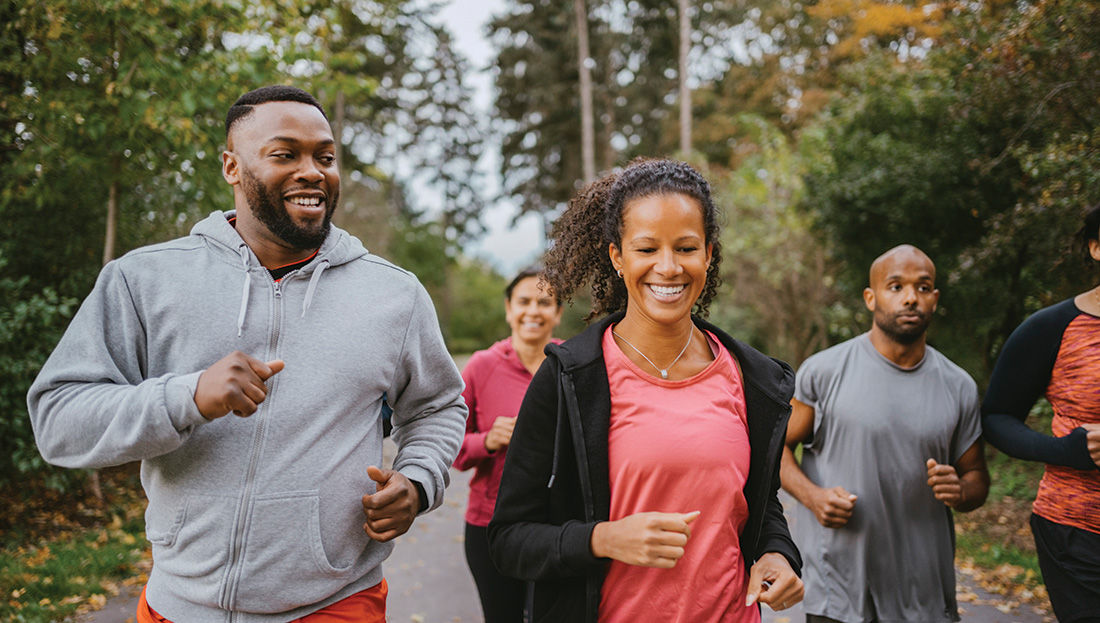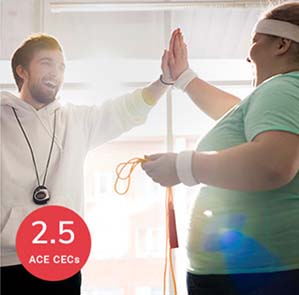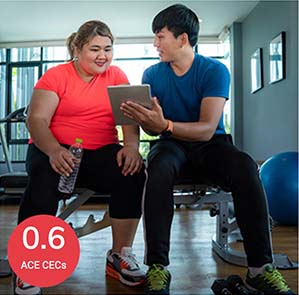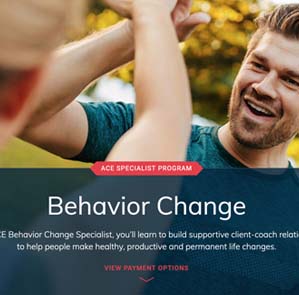
Study Finds 2 Keys to Successful Weight Loss are Health Coaching and Social Connection

Weight loss seems to be an even more popular topic than usual this year, no doubt fueled by the endless conversations and debates surrounding GLP-1 medications. Given how widespread overweight and obesity have become in the United States, it’s not surprising that weight loss is a common goal for many people, including, no doubt, many of your clients. And, while the GLP-1 drugs are, for many, a long-awaited solution to the challenge of losing weight, they aren’t for everyone, which means that non-pharmacological approaches—particularly those that research has shown to be effective—are still essential.
A new study highlights two weight-loss interventions that are not only effective, but also quite accessible, as they are delivered online. Specifically, researchers found that participating in health coaching and receiving social support from other participants were the two most beneficial features of online weight-loss programs for middle-aged adults (ages 35 to 55) who have obesity or overweight.
The social support component is particularly compelling, as numerous studies suggest that levels of loneliness are rising in the U.S., and that a lack of social connection is taking a toll on many people’s health and well-being. “Not only are there physical health issues related to obesity, but individuals with obesity are also at higher risk for mental health issues such as depression, poor self-esteem and social isolation,” explains Dr. Mansoo Yu, lead researcher and a professor in the University of Missouri College of Health Sciences.
The Study
In the study, Yu and his colleagues examined 20 years of existing published research on the topic of various online interventions geared toward helping those who have obesity lose weight. They identified which online features were associated with the most significant long-term weight loss.
“The three categories of online interventions we evaluated were those that only provided educational information and self-monitoring tools, those that had an online ‘group chat’ function where participants could share their progress with their peers and befriend each other, and finally those that included a professional health coach who could answer any questions participants had,” Yu explains. “The interventions with access to social support from other participants or professional health coaches were as effective as in-person weight-loss interventions.”
Yu adds that for people who live in rural areas, where individuals experience obesity at higher rates, online interventions can provide more accessibility, flexibility and convenience, as well as reduce transportation times and costs.
What the Research Means to Health and Exercise Professionals
Research studies like these are important in that they demonstrate the efficacy of online coaching in helping people reach their goals. They also highlight the opportunities that delivering coaching and training services online offers, whether you are a newly certified personal trainer or a veteran health coach. While there are lots of high-quality and highly polished exercise content on demand these days, what sets the online experience apart is your ability as a health coach or exercise professional to connect on a personal level with individual clients or group participants.
Tips to Share With Clients Who Have Made Weight Loss a Goal
- Share their resolution with friends, family members, significant others and colleagues to increase accountability and social support.
- Schedule some form of physical activity into their daily routine. Urge them to put it on the calendar, as they would any appointment or event, to increase the likelihood that they will follow through. Even better, encourage them to exercise with a friend or family member, who they won’t want to disappoint by not showing up.
- Check in with others they know who are trying to lose weight to see how their efforts are going and offer words of encouragement.
- Create fitness-related goals and challenges with peers via activity trackers, which make it possible to see who completed their target exercise minutes or walked more steps over the course of a day.
Never assume that a connection is being made just because a client or participant signed up for a session or showed up for a livestream. You must work to make that connection.
More so than ever, each person has their own unique set of challenges, priorities and distractions, including the stress and anxiety that began with the pandemic and perhaps never quite went away completely. Early in each session, create a moment of mindfulness and quiet before jumping into a workout or coaching session. Establishing a personal connection and offering a sense of joy and mindfulness can help clients and participants get a reprieve from their negative emotions and remind them that many people are in the same situation and feeling the same things, and that others truly care about how they’re doing.
If working one-to-one with a client, begin by greeting them by name and asking how they are doing. It seems so simple, but it does something important. It will provide some insight into the client’s needs and goals—which may have shifted since you last saw one another. Be sure to explicitly ask the client what they hope to get out of your time together.
If working with a group, greet all participants by name and give them a few minutes to greet one another and make small talk about how they’re coping. This will build rapport within the group and remind everyone how much you care about them and their overall well-being, not just their fitness level or physical performance. This also serves to expand the opportunity for social connection, which was found to be so beneficial in this study.
Finally, it is important that you understand and value what you bring to the table. Remember, your clients have plenty of resources for free in-home workouts via the internet—what they’re paying for is you, so be yourself and have fun!
Expand Your Knowledge
ACE Weight Management Specialist Program
What does struggling with overweight or obesity feel like? What thoughts occupy the minds of individuals trying to manage their weight? Each client is multidimensional, and it's important your approach to weight management is, too. As an ACE Weight Management Specialist, you will learn to coach with empathy and develop skills to support your clients' goals, leading them to meaningful change.
Coaching Strategies for Long-term Weight Management – Course Bundle
For many clients, maintaining their weight can be a challenging prospect—but you can make a difference. With the Coaching Strategies for Long-term Weight Management course bundle, you will learn to coach with empathy and develop skills to support your clients’ goals, leading them to meaningful, long-term change.
ACE Behavior Change Specialist Program
Any fitness, healthcare or allied health professional who wants to effectively guide their clients to their goals will benefit from this specialization. You will gain crucial communication skills to foster effective client-coach relationships and will learn cognitive behavioral coaching to help your clients reach their potential. After finishing the program, you will own critical skills that will elevate your profile as a health or exercise professional.

More Articles
- Certified™: March 2024
Cold Water Immersion: Is It Time to Take the Plunge?
Contributor
- Certified™: March 2024
Navigating Boundaries: Certified Health Coaches and the Importance of Respecting Scope of Practice
Contributor
- Certified™: March 2024
How to Choose the Right Yoga Teacher Training Program for You
Health and Fitness Expert




 by
by 




